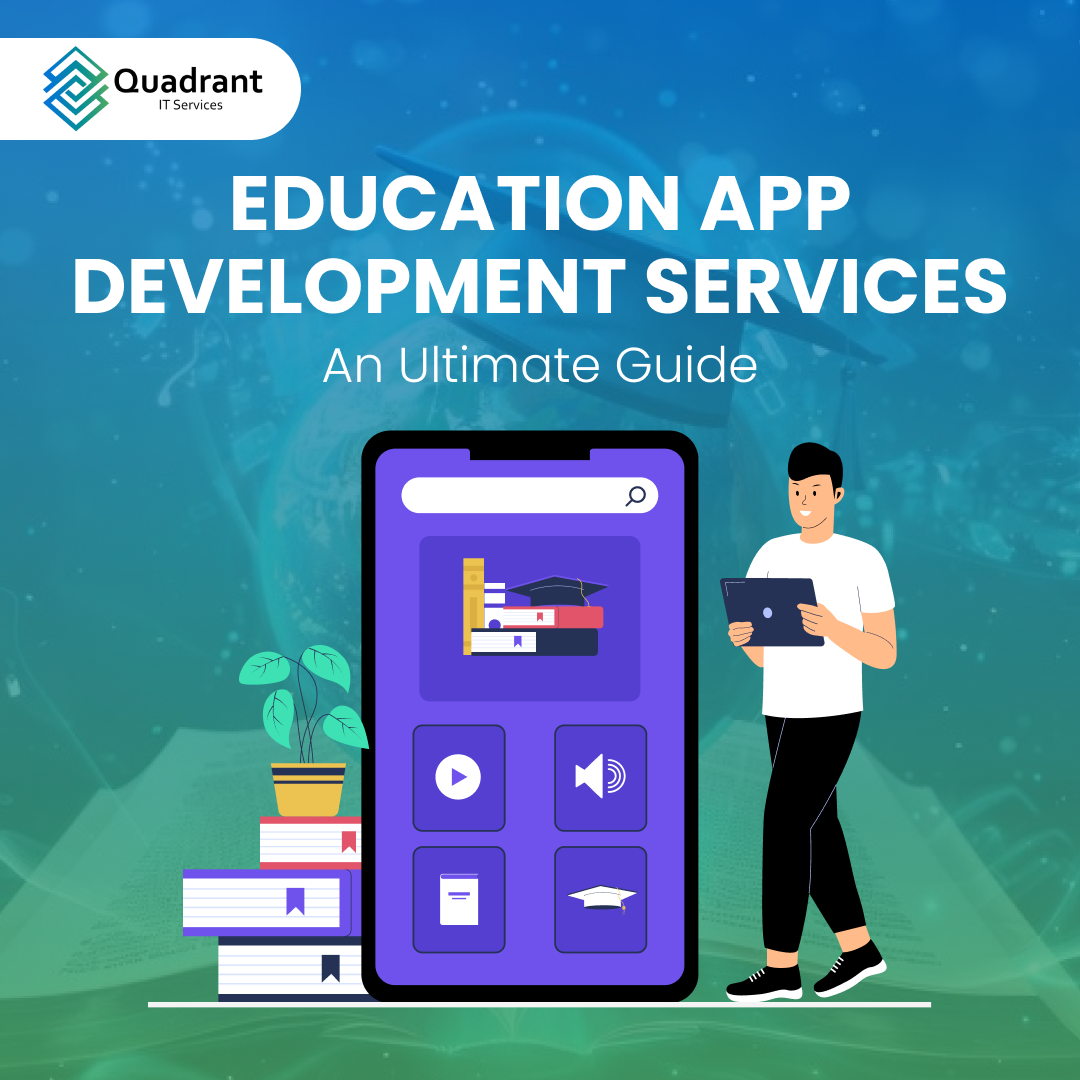Education App Development Services: An Ultimate Guide
The pandemic and subsequent lockdowns have profoundly impacted every industry, and education was no exception. Traditional classrooms transitioned overnight to virtual spaces, creating a pressing need for robust digital solutions. Schools, universities, and training institutions realized the importance of adapting to the “new normal,” and education apps emerged as essential tools for delivering uninterrupted learning experiences. From learning management systems (LMS) to school management software and exam portals, education apps have revolutionized the way knowledge is imparted and received.
This guide explores everything you need to know about education app development, covering various aspects of the industry and offering insights into how to create impactful applications.
What Is Educational App Development?
Educational Mobile app development Services involve creating software solutions tailored to the needs of learners, educators, and administrators. These apps serve a wide array of purposes, such as facilitating online learning, managing school operations, or providing platforms for self-paced education.
Modern educational apps integrate cutting-edge technology, including AI, AR/VR, and gamification, to make learning engaging and effective. Popular examples include:
- Learning Management Systems (LMS): Platforms like Moodle and Blackboard.
- School Management Software: Apps for attendance tracking, fee management, and communication.
- Exam Portals: Apps for mock tests, live exams, and results management.
- Skill Development Apps: Platforms like Coursera, Udemy, or Skillshare for upskilling.
- AR/VR-Based Learning: Apps offering immersive experiences for subjects like science or history.
The Importance of Mobile Apps in the Education Sector
The shift to digital learning has highlighted the pivotal role of mobile apps in education. Here are key reasons why education apps are indispensable today:
- Accessibility: Mobile apps break geographical barriers, allowing learners from remote areas to access quality education.
- Flexibility: Students can learn at their own pace and revisit lessons whenever needed.
- Personalization: AI-driven apps can customize lessons based on a learner’s strengths and weaknesses.
- Engagement: Gamified elements, quizzes, and multimedia content make learning more enjoyable.
- Efficiency: Teachers and administrators can streamline processes like grading, attendance, and parent-teacher communication.
Advantages and Disadvantages of Educational Apps
Advantages
- Interactive Learning: Apps integrate videos, animations, and gamification to engage learners.
- 24/7 Availability: Learning can happen anytime, anywhere.
- Cost-Effective: Eliminates the need for physical resources like textbooks or classrooms.
- Scalability: Apps can cater to a vast number of users simultaneously.
- Performance Tracking: Analytics provide insights into student performance and engagement.
Disadvantages
- Screen Time Concerns: Excessive usage can lead to health issues like eye strain or reduced physical activity.
- Digital Divide: Not all students have access to smartphones or stable internet connections.
- Dependency on Technology: Over-reliance may impact traditional learning methods and critical thinking.
- Data Privacy Risks: Apps handling sensitive student data may face security challenges.
How Much Does It Cost to Make an Education App?
The cost of developing an educational app varies depending on its features, complexity, and development approach. Here’s a breakdown:
- Basic App: $10,000–$20,000
- Simple e-learning platforms or exam portals.
- Medium-Complexity App: $20,000–$50,000
- Features like live classes, gamification, and user management.
- High-End App: $50,000+
- Advanced apps with AR/VR integration, AI-driven personalization, and multilingual support.
Factors influencing cost include:
- Design Complexity: Custom UI/UX and design systems add to expenses.
- Platform Choice: Native apps (iOS, Android) cost more than cross-platform solutions.
- Features: The inclusion of features like real-time chat, analytics, and cloud integration increases costs.
- Development Team: Rates differ based on the team’s expertise and geographical location.
How to Develop an Education App?
Developing an educational app involves the following steps:
- Market Research:
- Identify target users and understand their needs.
- Analyse competitors to identify gaps.
- Define Features:
- Core features may include login, course content, quizzes, and progress tracking.
- Advanced features can include AI-based recommendations or AR/VR experiences.
- Choose a Tech Stack:
- Backend: Node.js, Python, Ruby on Rails.
- Frontend: React Native, Flutter, or Swift.
- Database: MySQL, MongoDB, or Firebase.
- Design the App:
- Focus on intuitive navigation, appealing visuals, and a responsive design.
- Develop and Test:
- Build the app in stages (MVP, followed by full-fledged features).
- Conduct rigorous testing to eliminate bugs and ensure usability.
- Launch and Promote:
- Deploy the app-on-app stores and use marketing strategies like SEO, social media, and PPC campaigns.
- Maintain and Update:
- Regularly update the app to fix bugs, improve features, and meet evolving user needs.
Types of Educational Apps
Educational apps cater to diverse audiences and purposes. Here are some common types:
- E-Learning Platforms:
- Apps like Khan Academy and Coursera for academic and professional learning.
- Language Learning Apps:
- Platforms like Duolingo and Rosetta Stone.
- Exam Preparation Apps:
- Apps like BYJU’S, Unacademic, or PrepInsta for competitive exam prep.
- Skill Development Apps:
- Platforms offering courses in coding, photography, or design.
- AR/VR-Based Apps:
- Apps providing virtual lab experiments or 3D tours of historical landmarks.
- School Management Systems:
- Apps for managing administrative tasks, attendance, and parent-teacher communication.
- Interactive Storytelling Apps:
- Apps for young learners, combining learning with interactive storytelling.
Education app development is transforming the learning landscape by making it more accessible, interactive, and personalized. Whether it’s an LMS for schools, an exam portal for students, or a skill development app for professionals, the demand for educational apps is only growing. By carefully planning the development process and understanding market needs, you can create an app that not only meets user expectations but also sets your business apart in this thriving industry.








